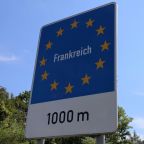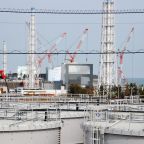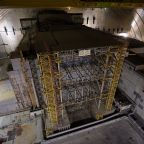Search results

Our GRS colleague Dr Michael Maqua has been performing the function of INES Officer for Germany on behalf of the Federal Ministry for the Environment for more than 13 years. INES stands for "International Nuclear and radiological Event Scale", a scale for the classification of nuclear events and accidents. The trained engineer followed the events around the nuclear accident at Fukushima from the GRS emergency centre. In this interview, he answers our questions about how he remembers this time.

On 10 February 2022, French President Emmanuel Macron explained to the public how he envisages France's energy supply for the next decades. In addition to large-scale new construction projects for offshore wind farms, the expansion of nuclear power in particular is intended to cover the electricity demand that will arise by 2050: Six new types of EPR2 reactors are to be built, and the construction of eight more is to be examined. In addition, the development of a so-called Small Modular Reactor and the long-term operation of older nuclear power plants are planned. What the new reactor types and long-term operation mean from a technical (safety) perspective is outlined below.

When it comes to further developments in nuclear engineering and new reactor concepts, the abbreviation SMR appears again and again. This article explains what is behind the term, gives an overview of some of the best-known concepts, and outlines the work of GRS on this topic.

Once again, 11 March marks the anniversary of the nuclear accident at the Fukushima-Daiichi nuclear power plant in Japan. Several thousand workers are still doing their jobs on the plant site every month - primarily to prepare the dismantling of the destroyed reactors. On the occasion of the anniversary, we look back on the main events and developments of the past year in this article.
We carry out research and provide expert opinions in the fields of nuclear safety, waste management and radiation and environmental protection. The results we obtain from this research - methods, models and simulation programs - form the evaluation basis for our work as experts. The application of the results in turn provides clues to what further research is necessary. This way, we can evaluate and at the same time help shape the current state of the art in science and technology.
GRS has bundled its software for the simulation of incidents and accidents into one large code package: AC². AC² combines the calculation codes ATHLET, ATHLET-CD and COCOSYS and thus allows cross-system examination of nuclear protection goals.

For about 10 years, our GRS colleague Dr. Michael Maqua has been performing the duties of the Ines officer for Germany on behalf of the Federal Environment Ministry. INES stands for "International Nuclear and Radiological Event Scale", a scale for the classification of nuclear incidents and accidents. More than 70 countries are currently using INES. The graduate engineer is engaged in international project management and answers all our questions about his work as an INES officer.
F. Boldt, M. Stuke, M. Péridis